
Nutrition Expert and Registered and Licensed Dietitian
Becky Hand earned a bachelor's degree in food, nutrition and dietetics from Marian College and a master's degree in health promotion and education from the University of Cincinnati. Becky has more than 25 years of nutrition experience in hospital and community settings. She is passionate about improving the health and wellness of people in her rural community as well as the lives of people throughout the world. Becky is involved in numerous food, nutrition and health education activities. A licensed and registered dietitian with a certificate in weight management from the American Dietetic Association, she also teaches weight-management classes for children and adults, conducts cooking classes and food demonstrations, and assists school districts in implementing wellness policies.
Whether Becky is talking to schoolchildren, a scout troop, college students, high school athletes, a women's club, church group, or corporate America, she wants her nutrition messages to be practical, easy to apply and fun! She utilizes humor and hands-on activities to involve the audience in her presentations and assists them in setting realistic goals and action plans.
More from Becky:
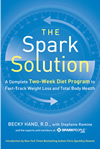 The Spark Solution: A Complete Two-Week Diet Program to Fast-Track Weight Loss and Total Body Health
The Spark Solution: A Complete Two-Week Diet Program to Fast-Track Weight Loss and Total Body Health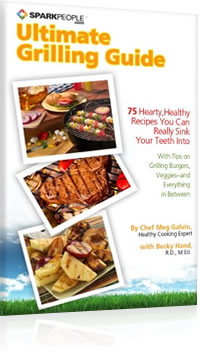 SparkPeople's Ultimate Grilling Guide: 75 Hearty, Healthy Recipes You Can Really Sink Your Teeth Into
SparkPeople's Ultimate Grilling Guide: 75 Hearty, Healthy Recipes You Can Really Sink Your Teeth Into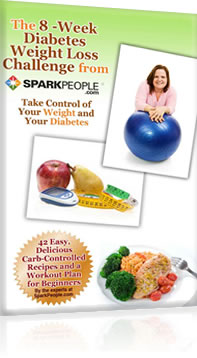 The 8-Week Diabetes Weight Loss Challenge from SparkPeople
The 8-Week Diabetes Weight Loss Challenge from SparkPeopleRead More of 's Blogs:
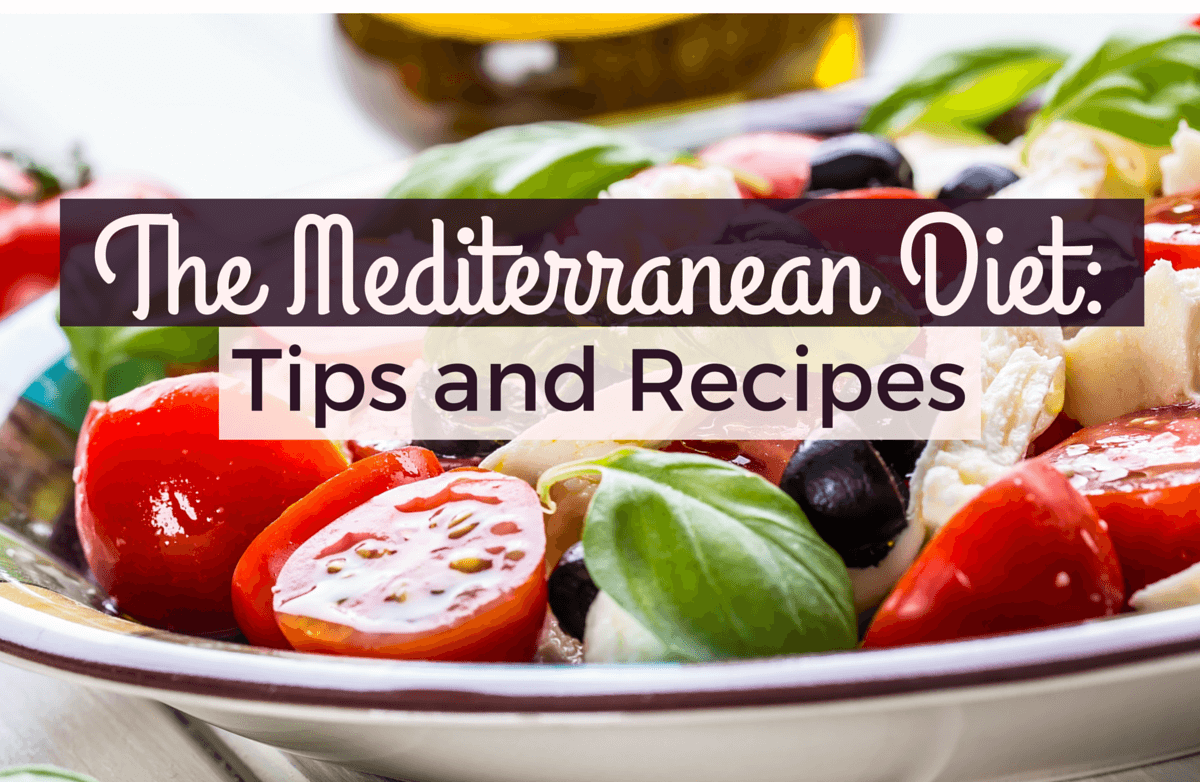
How to Eat a Mediterranean Diet for Heart Health
For years, the Mediterranean "diet" has been touted by many nutrition experts as a way to reduce the risk for cardiovascular disease, certain cancers and more, but the advice had been loosely based on the results of "observational studies." People living in countries that border the Mediterranean Sea, including Greece, Italy, Spain and Turkey, tend to have a lower risk of those diseases. These folks consume a bounty of fresh and wholesome fruits, vegetables, whole grains, fish, beans, olive oil, nuts and seeds.
Posted 3/1/2013 6:00:00 PM By: : 92 comments 664,130 views
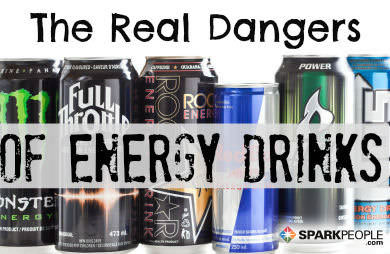
The Real Dangers of Energy Drinks
Recently my teenage son and I found ourselves killing time at the grocery store while waiting for the pharmacy to fill a prescription. Surrounded by an array of protein supplements and energy drinks, my typical "tell mom only what is absolutely necessary" son was full of questions and comments.
Our discussion about energy drinks was interesting--and somewhat disturbing--on several levels. As any mom knows, it is important to not pass judgment or show signs of shock if you want the conversation to continue. This little discussion led me to the following conclusions:
- Energy drinks are very popular with teens and young adults (no surprise there)
- It is a generational thing: I have my coffee; they have their energy drinks.
- Shop-lifting the energy shots (the small, concentrated bottles, including 5 Hour Energy, which I've written about in the past) is common. Some stores are placing these under lock and key.
- Savvy marketers have convinced our teens and young adults that energy drinks can provide them with a mental and physical edge. Therefore they are being used in large quantities both on a daily basis and before academic testing and sporting events.
Posted 2/15/2013 6:00:00 AM By: : 71 comments 56,041 views
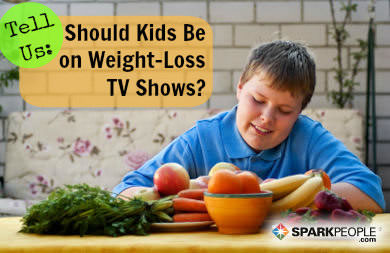
Weigh In: Should Kids Be on 'The Biggest Loser'?
For the first time in its 14 seasons, the hit weight-loss reality show The Biggest Loser is featuring obese children. If you've seen the show, you know that the producers have made some changes to the show's formula for these kids.
Find out my thoughts on this change to the show--and get tips to help your own family--in my latest blog on Huffington Post Healthy Living.
CLICK HERE TO READ THE BLOG
What do you think? Should children under 18 be allowed to participate in shows such as these?
Thanks for your thought-provoking comments on my last blog for Huffington Post, about how downplaying the obesity epidemic harms public health. I appreciate your continued input and insight to this community and my blogs.
Posted 2/8/2013 6:00:00 PM By: : 76 comments 19,032 views
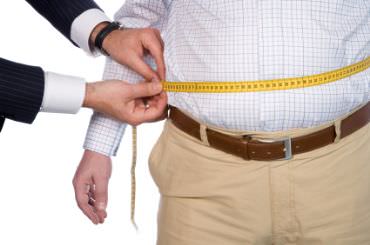
How Downplaying the Obesity Epidemic Harms Public Health
I've started blogging over at Huffington Post Healthy Living, where twice a month I'll write about the latest headlines in nutrition and weight loss.
This week I'm addressing the issue of downplaying the severity of the obesity epidemic in the media. I'd love it if you could read the blog and let me know what you think:
Why Downplaying the Obesity Epidemic, Even in a Single Story, is Hazardous to Public Health
Posted 1/25/2013 6:00:00 AM By: : 84 comments 32,944 views
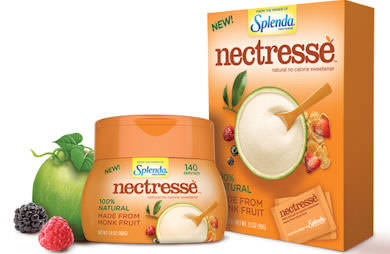
What You Need to Know about Nectresse, the Zero-Calorie Sweetener
I turned the corner and headed down aisle #6--the baking section of my local grocery store--eyes peeled for the "new kid" on the shelf. The new zero-calorie sweetener, Nectresse from the makers of Splenda. There it was, in canister and packet form. The label read: "100% natural" and "made from monk fruit." Really? 100% natural? Made from monk fruit?
Now, it was time to investigate.
What is monk fruit? Monk fruit (a dark-green, plum size fruit) comes from the plant, Siraitia grosvenorii, which is native to southern China and northern Thailand. The fruit also goes by the names Swingle fruit, Buddha fruit, luo han guo or luo han kuo. This fruit is noted for its intense sweetness, which comes from naturally occurring sweet constituents called mogrosides. In pure form, mogrosides are up to 300 times sweeter than table sugar. There are five different mogrosides, numbered from I to V, with mogroside V being the desired component. To remove the interfering components and aromas, manufacturers used an ethanol solvent solution.
How do they extract the sweetener? The end product is a powdered concentrate of mogroside V which is about 150 times sweeter than table sugar (depending on the mogroside V concentration). This non-nutritive sweetener is calorie-free and diabetic-safe, as it does not raise blood sugar levels. The powdered concentrate is very soluble in water and ethanol, heat stable, and can be stored for long periods of time without changes in taste, smell, or appearance.
Is it safe to eat? It is classified by the US Food and Drug Administration (FDA) as Generally Recognized As Safe (GRAS). Therefore, it can be used as a tabletop sweetener, as a food and beverage ingredient (gums, baked goods, snack bars, candy, drinks, etc), or as a component in other sweetener blends (since it may have an aftertaste at higher levels on its own). There is very preliminary research investigating possible health benefits—anti-cancer properties, antioxidant activities, benefits for diabetes with insulin production. However, much more research is needed before any health claims can be made.
What is in Nectresse? And is it 100% natural?
Posted 1/18/2013 6:00:00 AM By: : 65 comments 50,894 views
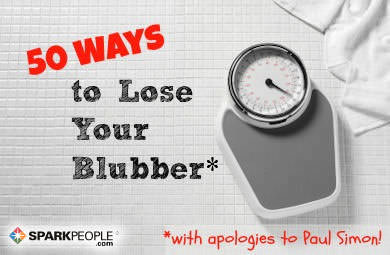
Easy, Effective Ways You Can Lose Weight in 2013
It hit the airwaves in December 1975 and became the number 1 song by February 1976. I was a freshman in high school, and although I didn’t have any experience in the "leaving a lover" department, the catchy lyrics of the Paul Simon hit “50 Ways to Leave Your Lover,” sure stuck in my head. No disrespect to Mr. Simon, but with the new year quickly approaching, I tweaked a few lines of his hit song to inspire you in coming up with your own “50 Ways to Lose Your Blubber.” Heck, I’ll even help you get started by sharing the first 15.
You make a new plan, Stan
Count calories too, Sue
Cut the sugar and fat, Pat
Weighing portions is key.
Use a smaller plate, Kate
Just mindfully crunch and munch
Watch less T.V., Lee
And set your fat free!
In 2013, I resolve to…
Posted 12/28/2012 6:00:00 PM By: : 54 comments 40,473 views

The Cost of a Cocktail: Up to 18 Pounds a Year
The wassailers arrived on stage during the local production of the Boar’s Head Yule Log Festival. Their voices boomed, yet blended beautifully.
Here we come a-wassailing
Among the leaves so green;
Here we come a-wand'ring
So fair to be seen.
Love and joy come to you,
And to you your wassail too;
And God bless you and send you a Happy New Year
And God send you a Happy New Year.
Sitting in front of me was a little girl. She turned to the woman sitting next to her: “Mommy, Mommy,” she asked. “What’s a wassailer?”
Back in the day, the Christmas season made the rich a little more generous. Therefore bands of peasants and beggars would dance and sing their way through the streets of England in hopes of obtaining drinks from the wealthy's wassail bowls, which contained a hearty combination of hot ale, beer, apple slices, and spices. 'Twas a perfect brew to warm a frozen nose and tingling toes, and these singers would head from home to home searching for more.
Since those carolers were walking door-to-door, they probably expended the wassail calories and didn't worry much about packing on the pounds. Today however, this is probably not the case. Not only can we blame alcohol for our weight gain, but many of us are drinking our calories instead of reaching for nutrient-dense foods.
A recently released data brief from the National Center for Health Statistics reported on the calories consumed from alcoholic beverages by 11,000 U.S. adults from 2007-2010. This information was obtained from adults, ages 20 and older, using 24-hour dietary recall interviews. The results are shocking!
Posted 12/21/2012 12:00:00 PM By: : 59 comments 56,433 views
.jpg)
You Asked: Will Fasting Jump-Start My Weight-Loss Efforts and Boost My Health?
Fasting has long been touted as a healthy process with many benefits such as cleaning the system, ridding the body of so-called toxins, benefiting the intestinal track, boosting metabolism, and jumpstarting weight loss. However none of these notions is true, nor is any of them backed up by medical research.
While a short-term fast probably won’t harm most people, it could be quite dangerous for others, depending on their medical conditions, health histories, and medication use. I strongly urge you to talk to your physician before ever starting or considering a fast.
Posted 12/19/2012 8:00:00 AM By: : 59 comments 72,582 views
.jpg)
Tiny Tastes: A Surefire Way to Gain Weight during the Holidays
Editor's note: Don't miss the video of Becky sharing holiday weight-maintenance tips at the end of this blog!
Sneaky holiday calories are everywhere this time of year. With travel, parties, big buffets, holiday baking, and extra snack foods at the office, a challenging environment is around every corner. These extra calories don’t always come in full-size servings or large-distorted portions. No, these extra calories tip-toe in amid the holiday hoopla. However, if you took the time to count all those "tiny tastes" each day, you would be surprised at how quickly they can sabotage your weight-maintenance efforts.
Check out a typical day of tiny tastes during the holidays
Posted 12/19/2012 6:00:00 AM By: : 34 comments 60,968 views

4 Ways to Enjoy Holiday Treats While Dieting
It's the most wonderful time of the year, unless you are trying to adhere to a weight-loss plan. Then the holidays can feel like a day-after-day deprivation. The 41 days between Thanksgiving and New Year's Day can be packed with festivities filled with fattening foods making you feel frantic and frustrated. But denying yourself of all the holiday treats is not the way to go.
The act of restricting your favorite foods can actually backfire and bring about unplanned overeating and binging. A 2007 study in the journal Appetite documented this vicious cycle which can result in feelings of guilt, anxiety and depression. Dieters who implemented strict food restrictions had an increased desire for those "forbidden foods," bringing about food cravings and greater temptation; when compared to dieters who included these type "forbidden foods" on occasion.
So keep this the most wonderful time of the year--relax, enjoy the holiday and include the foods you love--on occasion! Here are strategies and tips to help:
Posted 12/7/2012 8:00:00 AM By: : 22 comments 39,363 views
.jpg)
Even Dietitians Have a Vice (Bidding Adieu to Ho-Hos)
If you recently thought you heard some strange, frantic scream coming from the direction of southeastern Indiana, you were right. Your ears were not deceiving you. It was me, Dietitian Becky, mourning the death of my dear friend, the Ho-Hos. I am not the only one in mourning. In fact, nutrition professor and food activist Marion Nestle is doing the same.
It was actually my teenage son who informed me recently of this crisis. He keeps me up-to-date on most of the tragedies of the world. ''Hey, Mom,'' he asked, ''What are you going to do without your Ho-Hos?''
''Without my Ho-Hos? What the heck are you talking about?'' I responded.
If you haven’t heard, Hostess Brands is in deep financial trouble, closing plants, and wants to sell off its brands. It has been reported that more than 18,500 people will lose their jobs and full liquidation is expected since mediation with the striking bakers’ union has failed. Bye-bye Twinkies, so long Ho-Hos, sayonara Sno Balls!
While there isn’t a package of these Hostess products currently in my pantry and I didn't storm the supermarket the way others have, they have been known to appear from time to time.
While I was never a fan of the golden sponge cake with creamy filling known as Twinkies, I adored those cylindrical, frosted, cream-filled cakes. As a child, these Ho-Hos were not found in my Flintstones lunch box often--mom said they were too expense and she made cookies weekly for my school lunch treat. However, on special occasions, those Ho-Hos would show up to brighten my school day. Heck, yes, I would get requests to trade, but nothing was worth giving up my Ho-Hos. Except when I entered fourth grade and would share one (just one!) of the Ho-Hos with my beau, Terry.
Today, as a Registered Dietitian, I really can’t report much nutritional value of these Hostess goodies. But they do teach perhaps another lesson (or two)!
Posted 11/30/2012 6:00:00 AM By: : 88 comments 30,034 views
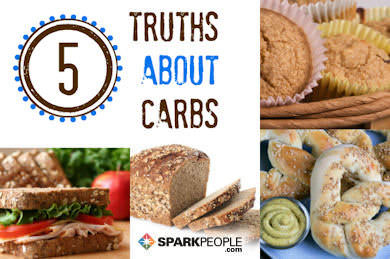
The Truth about Carbs
Gone are the days of carbohydrates being the evil enemy of weight loss. But before you serve up platters of pasta and piles of pancakes, it’s important to separate the truth from the myths we've all heard about carbs. (These rules do not apply to those who have diabetes.)
Myth: You don't need carbs.
Truth: Carbohydrates are the body’s ideal fuel for most functions. They supply the body with the energy needed for the muscles, brain and central nervous system. During digestion, these carbohydrates are broken down into glucose before they can enter the bloodstream, where insulin helps the glucose enter the body’s cells. Some of the glucose is used for immediate energy needs. Some is stored as glycogen in the liver and muscles for future energy needs such as fueling your workout. If there is extra glucose, it will then be stored as body fat.
Posted 11/9/2012 10:00:00 AM By: : 67,768 views

You Asked: ''What Are the Benefits of Drinking More Water?''
As a whole, we are made up of 70% water. Water regulates every function in our bodies. Water flushes out waste and toxins. It also transports all the necessary nutrients we need to look and feel good. It flushes out impurities in the skin; when skin cells are hydrated, they plump up to give you a good complexion. Also, muscles that are hydrated look more toned because they are made of 70% water. Not drinking enough water is similar to depriving that less-than-vibrant plant you water every few weeks. The plant will survive, but at what expense.
Posted 10/7/2012 7:00:00 AM By: : 82 comments 122,872 views
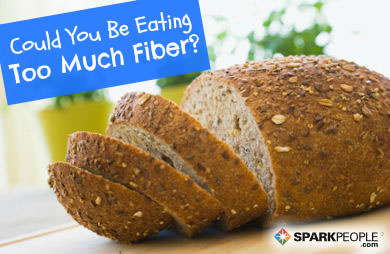
You Asked: Is It Possible to Eat Too Much Fiber?
Fiber plays an important role in your health. Most adults need to eat between 25 and 35 grams of fiber each day. (To learn more about fiber sources and health benefits, read Figuring Out the Facts on Fiber.) Despite all its health benefits, you can overdo it on fiber. Eating more than 50 grams of fiber a day might…
- decrease the amount of vitamins and minerals your body absorbs, among them zinc, iron, magnesium, and calcium.
- move food through the digestive tract too quickly for some nutrients to be absorbed properly.
- cause gas, diarrhea, bloating, diarrhea or stomach discomfort.
- decrease your appetite for other nutrient-rich foods that are needed by the body for proper health.
Posted 10/1/2012 12:00:00 AM By: : 57 comments 70,134 views
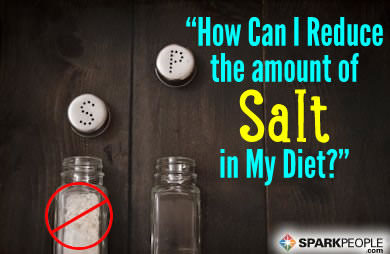
You Asked: ''What Are Some Ways to Reduce the Sodium in My Diet?''
Most Americans are encouraged to consume less than 2,300 milligrams of sodium each day. With certain disease conditions such as hypertension or congestive heart failure, 2,000 milligrams or less is encouraged. However, the average adult American takes in around 4,000 to 6,000 milligrams daily.
Try to tame your salt-craving taste buds by slowly decreasing the amount of salt in your diet to a moderate level. The preference for salt is learned. It will take time to adjust.
Posted 9/11/2012 6:00:00 AM By: : 38 comments 25,422 views
‹ Back Read More Entries ›




